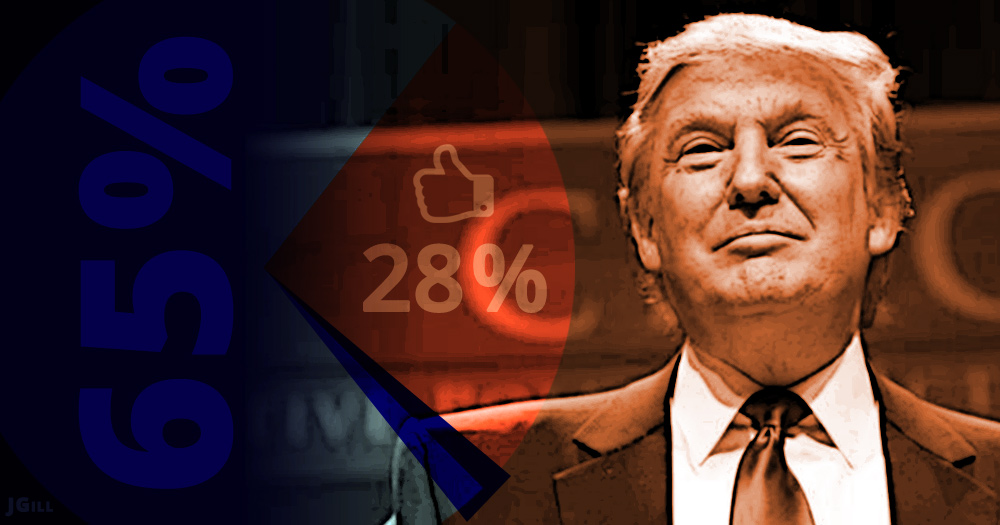You’ve heard the news: Donald Trump is now the Republican Party’s “likely presumptive nominee” for president. It’s a very modern-sounding term.
His 16 opponents have, one by one, suspended their campaigns. In coming weeks, as the billionaire businessman wins uncontested primaries, we’re told he’ll be “awarded” enough delegates to reach the magic number of 1,237 — a majority.
For weeks, Mr. Trump had been yelling that the Republican National Committee was rigging the process to block his nomination. Now, RNC Chair Reince Priebus and a host of establishment Republicans have endorsed Mr. Trump, including former Senate Majority Leader Bob Dole, Sen. John McCain, the 2008 nominee, and Senate Majority Leader Mitch McConnell.
“You have to listen to people that have chosen the nominee of our Republican Party,” John McCain told CNN. “I think it would be foolish to ignore them.”
McCain raises several interesting issues, worth considering over the next few days.
Let’s consider foolishness, first. There is a pragmatic argument against Trump as the nominee. While polls show Trump losing to Hillary, with 28 percent viewing him favorably against 65 percent unfavorably, a Politico story argues that, “A generic Republican might have been a favorite for the White House.”
Yet, most of the opposition to Trump isn’t pragmatic, it’s a matter of hardworking, grassroots Republicans who sincerely believe his positions don’t fit the party’s principles, or that his behavior has fallen short. Agree or disagree, but those are worthy considerations.
It’s a time for choosing. More tomorrow.
This is Common Sense. I’m Paul Jacob.
Common Sense Needs Your Help!
Please consider showing your appreciation by dropping something in our tip jar (this link will take you to the Citizens in Charge donation page… and your contribution will go to the support of the Common Sense website). Maintaining this site takes time and money.
Your help in spreading the message of common sense and liberty is very much appreciated!


4 replies on “Fat Lady Score”
Trump could make history. He would be the first non-Republican to win the Republican nomination
Republicans will rue the day they chose Trump. Glad I will have a decent candidate in the LP.
“A generic Republican might have been a favorite for the White House.”
Utter hogwash! The minute someone is chosen, he or she ceases to be a ‘generic Republican’. Paul, you say it’s a time for choosing. What have all these primaries and caucuses been about? Republican voters have been making their choice. We’re not done, yet. If the elites don’t like it, then maybe the changes for 2020 should include an end to the show of primaries run by individual states. Then again, we could make half the delegates super delegates. If the candidate of the elites wins enough primaries, the elites can say ‘the people have spoken’ and the super delegates can go along with them, in a show of unity. If not, all the super delegates have to do is vote for their choice (likely overriding a plurality of voters) and say it’s time for the party to unify behind the candidate ‘chosen by the convention’.
Funny, but the elites did not nominate Mitt Romney in 2012 any more than they nominated Donald Trump this year. Romney had just shy of 10,000,000 votes, roughly 770,000 behind where Trump currently is. Yes, Trumps has more votes with more primaries yet to come, though these are all but meaningless. The biggest difference is turnout, of course, but that works both ways. Romney only had 7,735,387 votes against him, garnering well over 50% of the total. That’s called a majority. Trump, on the other hand, has had 15,934,362 votes against him, fully twice as many as Romney. So if it is true that this cycle has brought out far greater turnout, it does not follow that Trump gets the credit for bringing out the masses. Unless, of course, you also give him credit for bringing out a far greater opposition vote than the vote in his favor. How does the 50+ different races benefit a candidate? Well, if you get 45% in a state like Florida, you get 100% of the delegates, thus disenfranchising the other 55%. Whether that is good or bad depends on what candidate you supported. No one in the Trump campaign complained about it, yet had Trump lost there I fully expect that Trump and his throng would have been screaming about how they got cheated by the winner-take-all system in that state. So I am certainly open to a discussion about how the states allot their delegates, but most primaries do break it down in a way that is based on county results, combined with overall results. That is certainly more representative than the Florida model. If the argument is that all should be the same, then there needs to be a discussion about what is the system most acceptable to the party voters. That means they need to seek leadership in their state parties with a grass roots effort, roll up their sleeves and get their hands dirty. No point in complaining if one is not willing to do something about it.
Trump’s problem is certainly not the elites of the party, it’s with the 60% of the rank and file who greatly outnumber the ones who voted for him. A win by mere plurality is not what I call a mandate.